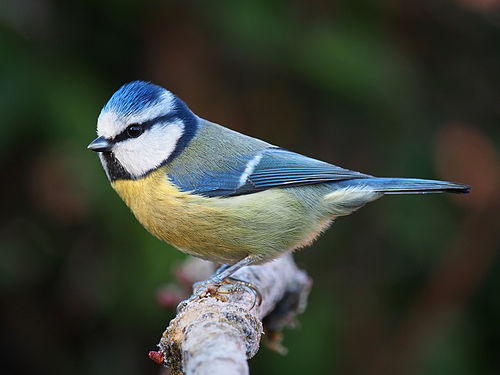Speciesnoun
Type or kind. race.}}
Speciesnoun
A group of plants or animals having similar appearance.
Speciesnoun
(taxonomy) A rank in the classification of organisms, below genus and above subspecies; a taxon at that rank.
Speciesnoun
(mineralogy) A mineral with a unique chemical formula whose crystals belong to a unique crystallographic system.
Speciesnoun
An image, an appearance, a spectacle.
Speciesnoun
(obsolete) The image of something cast on a surface, or reflected from a surface, or refracted through a lens or telescope; a reflection.
Speciesnoun
Visible or perceptible presentation; appearance; something perceived.
Speciesnoun
A public spectacle or exhibition.
Speciesnoun
(Christianity) Either of the two elements of the Eucharist after they have been consecrated.
Speciesnoun
Coin, or coined silver, gold, or other metal, used as a circulating medium; specie.
Speciesnoun
A component part of compound medicine; a simple.
Speciesnoun
An officinal mixture or compound powder of any kind; especially, one used for making an aromatic tea or tisane; a tea mixture.
Species
Visible or sensible presentation; appearance; a sensible percept received by the imagination; an image.
Species
A group of individuals agreeing in common attributes, and designated by a common name; a conception subordinated to another conception, called a genus, or generic conception, from which it differs in containing or comprehending more attributes, and extending to fewer individuals. Thus, man is a species, under animal as a genus; and man, in its turn, may be regarded as a genus with respect to European, American, or the like, as species.
Species
In science, a more or less permanent group of existing things or beings, associated according to attributes, or properties determined by scientific observation.
Species
A sort; a kind; a variety; as, a species of low cunning; a species of generosity; a species of cloth.
Species
Coin, or coined silver, gold, or other metal, used as a circulating medium; specie.
Species
A public spectacle or exhibition.
Species
A component part of a compound medicine; a simple.
Species
The form or shape given to materials; fashion or shape; form; figure.
Speciesnoun
(biology) taxonomic group whose members can interbreed
Speciesnoun
a specific kind of something;
Speciesnoun
a group of living organisms consisting of similar individuals capable of exchanging genes or interbreeding. The species is the principal natural taxonomic unit, ranking below a genus and denoted by a Latin binomial, e.g. Homo sapiens.
Speciesnoun
a group subordinate to a genus and containing individuals agreeing in some common attributes and called by a common name.
Speciesnoun
a kind or sort
Speciesnoun
used humorously to refer to people who share a characteristic or occupation
Speciesnoun
a particular kind of atom, molecule, ion, or particle
Speciesnoun
the visible form of each of the elements of consecrated bread and wine in the Eucharist.
Species
In biology, a species is the basic unit of classification and a taxonomic rank of an organism, as well as a unit of biodiversity. A species is often defined as the largest group of organisms in which any two individuals of the appropriate sexes or mating types can produce fertile offspring, typically by sexual reproduction.
Populationnoun
The people living within a political or geographical boundary.
Populationnoun
By extension, the people with a given characteristic.
Populationnoun
A count of the number of residents within a political or geographical boundary such as a town, a nation or the world.
Populationnoun
(biology) A collection of organisms of a particular species, sharing a particular characteristic of interest, most often that of living in a given area.
Populationnoun
(statistics) A group of units (persons, objects, or other items) enumerated in a census or from which a sample is drawn.
Populationnoun
(computing) The act of filling initially empty items in a collection.
Populationnoun
The act or process of populating; multiplication of inhabitants.
Populationnoun
The whole number of people, or inhabitants, in a country, or portion of a country; as, a population of ten millions.
Populationnoun
the people who inhabit a territory or state;
Populationnoun
a group of organisms of the same species populating a given area;
Populationnoun
(statistics) the entire aggregation of items from which samples can be drawn;
Populationnoun
the number of inhabitants (either the total number or the number of a particular race or class) in a given place (country or city etc.);
Populationnoun
the act of populating (causing to live in a place);
Populationnoun
all the inhabitants of a particular place
Populationnoun
a particular group or type of people living in a place
Populationnoun
the extent to which an area is or has been populated
Populationnoun
the action of populating a place.
Populationnoun
a community of animals, plants, or humans among whose members interbreeding occurs
Populationnoun
a finite or infinite collection of items under consideration.
Populationnoun
each of three groups (designated I, II, and III) into which stars can be approximately divided on the basis of their manner of formation
Population
In biology, a population is a number of all the organisms of the same group or species who live in a particular geographical area and are capable of interbreeding. The area of a sexual population is the area where inter-breeding is possible between any pair within the area and more probable than cross-breeding with individuals from other areas.In sociology, population refers to a collection of humans.



















